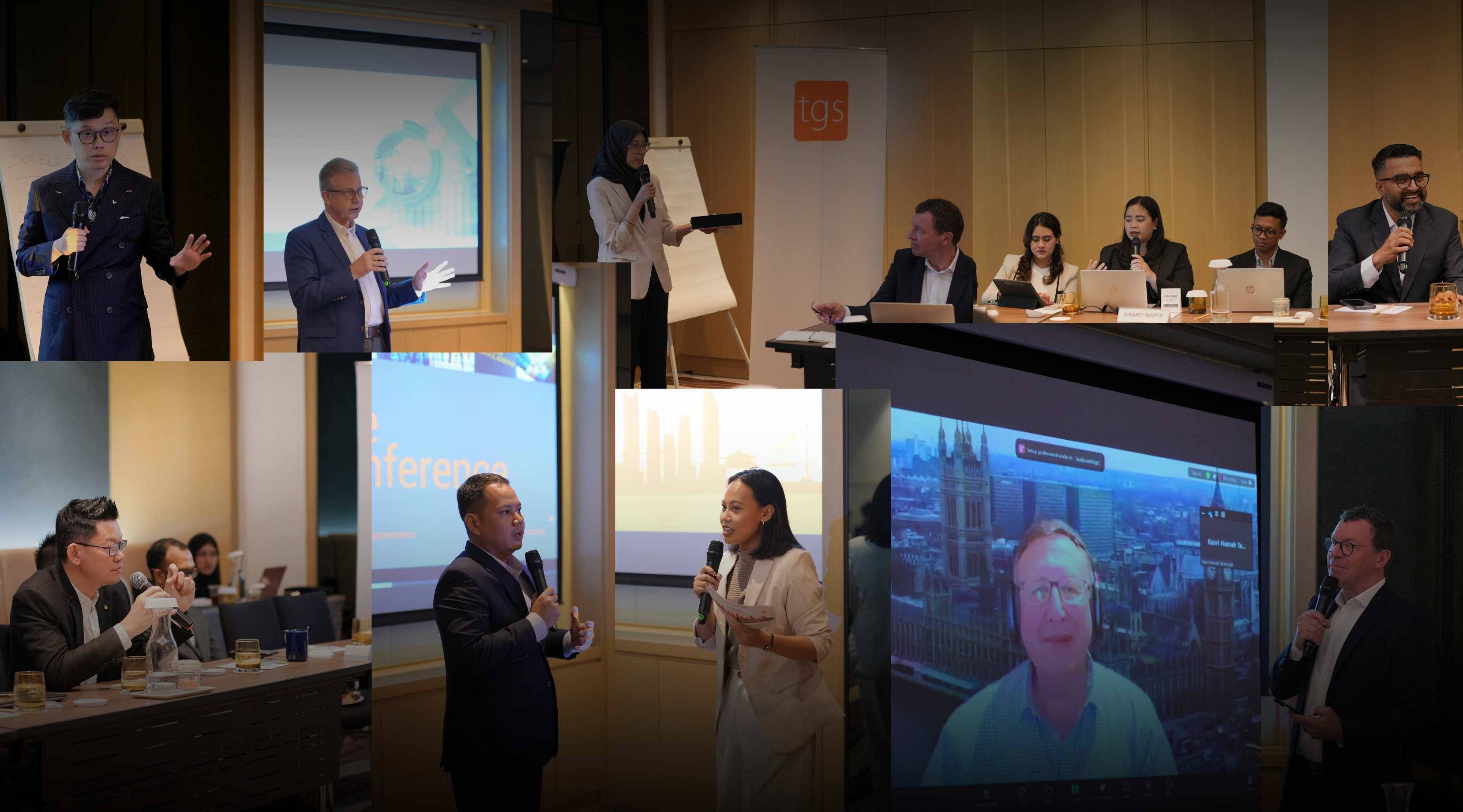The Future of Regional Growth and Professional Services: Next Steps from TGS APAC 2025 Conference Day 1
The TGS Asia Pacific Conference 2025 officially opened in Jakarta on June 30, welcoming delegates from across the region for two days of collaboration, strategic discussions, and cross-border engagement. The first day is set with insightful sessions covering global growth strategies, regional economic outlooks, technology-driven transformation, and the future of ESG reporting.

Opening the Conference: Strengthening Regional and Global Connections
The conference began with a warm welcome from TGS President Jonathan Franks, TGS CEO Andrew Menzies, and TGS Asia Pacific Leader Mikail Jam’an. Their messages highlighted the importance of regional alignment and global connection within the TGS network.
Jonathan emphasized the need for quality in operations and introduced strategic initiatives such as an affiliate program and hub network aimed at expanding TGS’s global presence. He also stressed the importance of collaboration across firms to deliver more value to clients and strengthen member connections.
Our Service Recommendations
Key next steps outlined during the session included:
-
Completing the member survey on conferences.
-
Strengthening regional strategies and collaboration.
-
Implementing the new quality program.
-
Expanding into new countries and acquiring new members.
-
Launching the affiliate framework and hub structures by September.
-
Encouraging participation in the upcoming Bangkok conference in November.
Regional Economic Outlook: Trade and Investment Opportunities
In the second session, Ian Betts from CastleAsia delivered a comprehensive Asia-Pacific macroeconomic outlook for 2025–2026. Growth is projected to remain resilient at 3.9%–4.9% in 2025, supported by domestic consumption, digital and green investments, supply chain diversification, and India’s strong expansion.
News & Articles Recommendations.
Key drivers of growth included:
-
A rapidly growing middle class fueling demand.
-
Investments in digital infrastructure and green energy.
-
Supply chain diversification benefiting ASEAN economies.
-
Regional integration through the ASEAN Economic Community 2026–2030 plan.
At the same time, risks such as China’s structural slowdown, geopolitical tensions, climate vulnerability, and capital flow volatility remain challenges.
Country & Sector Highlights
-
Indonesia: Positioned as a regional anchor with growth projected at 5.0–5.1%, backed by consumption, infrastructure, and digital expansion. Opportunities lie in green energy, EV battery supply chains, fintech, and infrastructure projects like the new capital city, Nusantara.
-
Vietnam: Strong in semiconductors, textiles, and FDI inflows.
-
Philippines: Driven by consumption and infrastructure, with BPO growth.
-
Malaysia & Thailand: Electronics, tourism, and automotive as key sectors, though facing demographic and fiscal challenges.
Next Steps for Firms
-
Track scenario-based forecasts: moderate baseline growth, downside from trade tensions, or upside from regional integration.
-
Align firm strategies with digital economy and green transition trends.
-
Support clients in navigating capital flows and policy changes.
-
Consider double-niching (tying sector specialization with national strategies) to stay relevant amid uncertainties.
Success Stories and Technology Transformation
The third session showcased inspiring growth stories and the transformative impact of technology in professional services.
-
Steve Ooi (TGS TW PLT, Malaysia) shared his firm’s growth strategy since 2019, emphasizing cross-border collaboration, technical enhancement, and market visibility.
-
Mikail Jam’an demonstrated how AI can cut repetitive audit, tax, and accounting work from hours to minutes, streamlining processes like bank reconciliations, tax slip summarization, and report reviews.
-
Siong Yoong led a strategy discussion, where members highlighted innovation and expertise as client magnets, but also identified a gap between client challenges and firm strategies. He introduced the Double-Niching approach as a pathway for firms to sharpen focus and deliver highly specialized services.
Capital Market & ESG Reporting with IDX
The final session featured guest speakers from the Indonesia Stock Exchange (IDX), highlighting both the opportunities in Indonesia’s capital market and the rapid development of ESG reporting frameworks.
Capital Market Updates
-
Indonesia remains an ASEAN powerhouse, representing 40% of ASEAN’s population and 37% of its GDP.
-
Market growth is supported by an investment-grade rating (Fitch BBB, Moody’s Baa2), strong reserves, and economic resilience.
-
The IDX is evolving into a multi-asset class exchange, offering equities, bonds, sukuk, ETFs, REITs, infrastructure funds, and carbon trading.
-
IPO opportunities continue to expand with new economy boards, dual-class share structures, and incubator programs supporting high-growth companies.
ESG Developments
The IDX highlighted its initiatives to strengthen ESG adoption and reporting among listed companies:
-
Launch of Form E020 for ESG metrics reporting, aligned with ASEAN Common Core Metrics and GHG Protocol.
-
Development of five ESG indices (including IDX ESG Leaders, IDX LQ45 Low Carbon Leader, and SRI-KEHATI).
-
A growing pipeline of green, social, and sustainability bonds/sukuk issuance.
-
Expansion of the Net Zero Incubator Program, offering training on carbon accounting and target setting to listed companies.
Next Steps for Firms
-
Explore capital-raising opportunities for clients through IDX’s expanded listing platforms.
-
Integrate ESG advisory into services, helping clients adopt metrics and improve disclosures.
-
Position ESG services around regulatory alignment (OJK sustainability roadmap, Paris Agreement targets) and investor demand for responsible investment.
-
Leverage the TGS ESG Activator tool as a differentiator in offering structured diagnostics and readiness support to clients.
The first day of the TGS APAC Conference 2025 underscored the importance of regional collaboration, technology adoption, capital market growth, and ESG readiness. From macroeconomic scenarios to IDX’s push for sustainability integration, the discussions offered members a roadmap to guide firms and clients through both opportunities and risks in the evolving Asia-Pacific landscape.
As discussions continue on Day 2, delegates carry forward new perspectives, stronger connections, and shared ambitions for the future of audit, tax, legal, and advisory services across the Asia-Pacific region.
News & Articles Recommendations.





